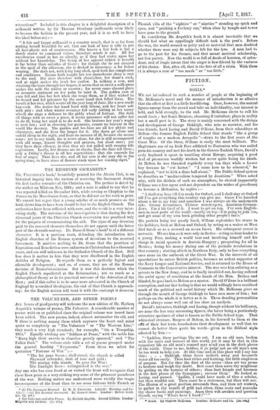THE RESERVED SACRAMENT.*
Ma. FREESTONE'S book,' beautifully printed for the Alcuin Club, is an historical inquiry into the custom of reserving the Sacrament during the first twelve centuries of the Christian era. The preface is dated by the author on Whitsun Eve, 1916 ; and a note is added to say that he was reported killed on December 14th, while serving as Chaplain to the Forces on the Macedonian front, so that he did not see his work in print. We cannot but regret that a young scholar of so much promise as the book shows him to have been should be lost to the English Church. The authorities have been collected with care, and the result is a very inter- esting study. The outcome of the investigation is that during the first thousand years of the Christian Church reservation was practised only for the purpose of communicating the sick. The signs of any devotion paid to the reserved elements themselves do not appear until the latter part of the eleventh century. Dr. Darwell Stone's book2 is of a different character. It is a partisan tract, defending the introduction into English churches of the Roman system of devotions to the reserved Sacrament. It matters nothing to Dr. Stone that the practices of Exposition and Benediction were unknown in Christendom for a thousand years, and are still unknown in the Orthodox Church of the East. Still less does it matter to him that they were disallowed in the English Articles of Religion. He regards them as a perfectly logical and allowable development ; and so, of course, they aro of the Roman doctrine of Transubstantiation. But it was this doctrine which the English Church repudiated at the Reformation ; not so much as a philosophical theory as in its practical outcome of the Adoration of the Host ; and if this vines is to be once more advocated in the Church of England by accredited theologians, the end of that Church is approach- ing ; for the English nation will treat it with the contempt it deserves.


























 Previous page
Previous page